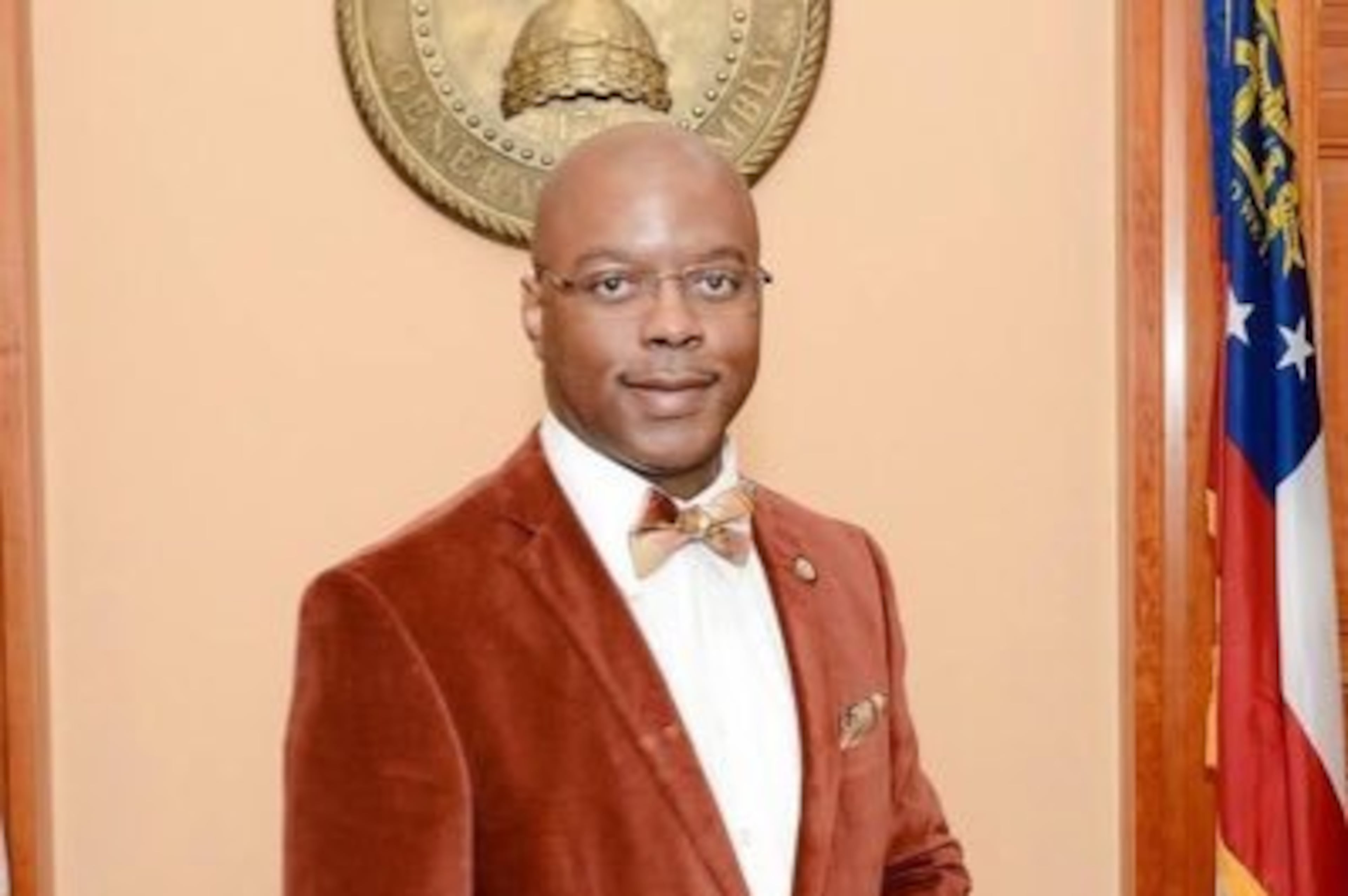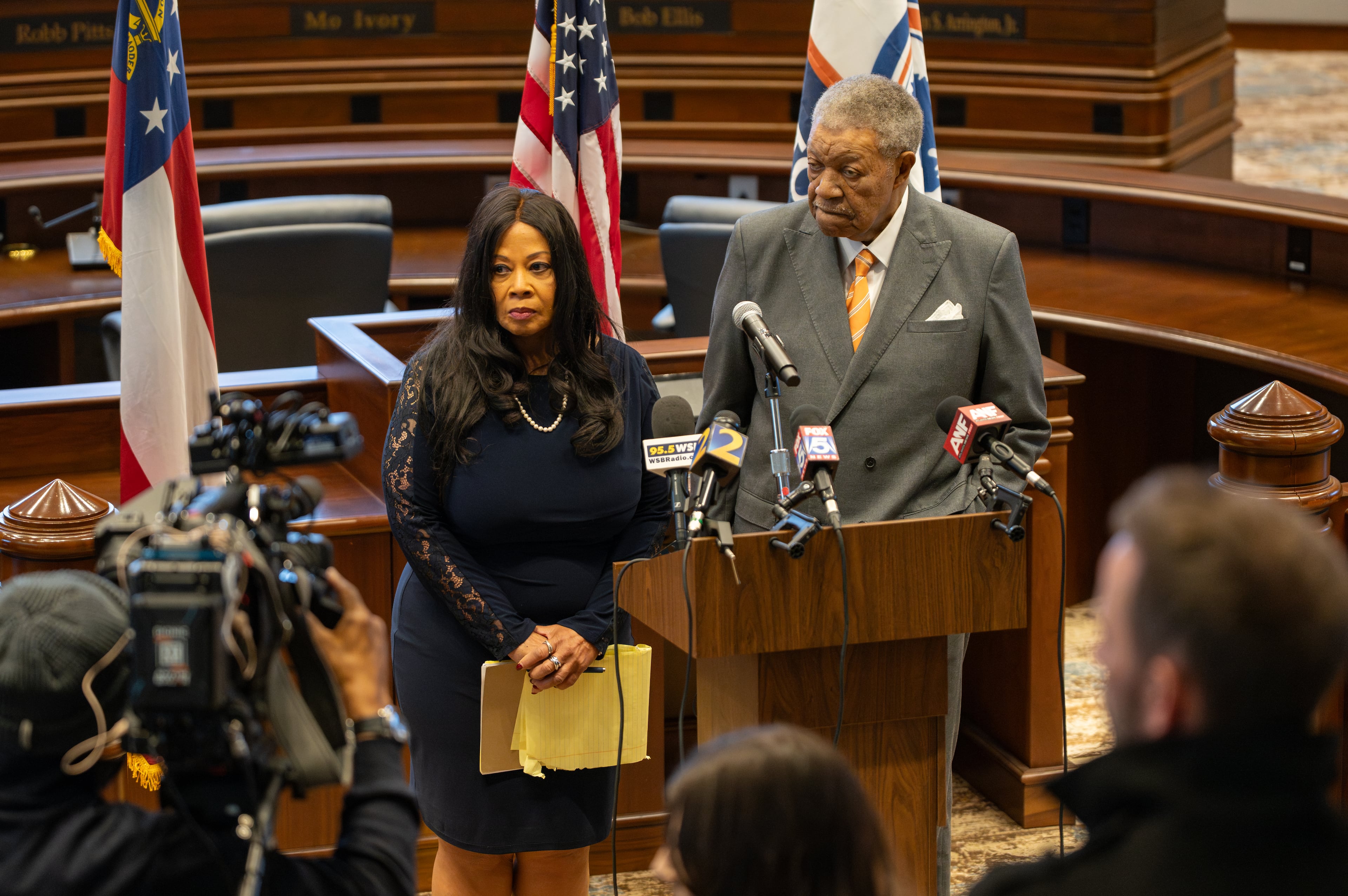Georgia court case focuses on what is dentistry and what is overreach

The state investigator with the bulky belt was an unlikely client at Jessica Julien’s business. Once he got past the door, he quickly told her the truth: He was there to shut her down.
People came to Julien’s office in Duluth to get whiter teeth through her advice and instruction while they sat in comfortable chairs and applied the products she sold. Teeth whitening has become a gold mine, and the Georgia Board of Dentistry, made up mostly of dentists, says no one but dentists can do it — that is, dentists or any member of the public, who can legally buy the products themselves.
Julien’s problem was she stepped in the middle.
Her case against the board has now become a flash point in the battle over regulation. In federal court this week in Atlanta, attorneys from an international law firm in Washington represented Julien free of charge. The state Board of Dentistry brought in its own outside lawyers to ask the judge to dismiss her case.
The arguments quickly mushroomed from the simple question of a woman and her clients to broad accusations — of anti-competitive collusion from Julien’s side; and from the board’s perspective, “a broadside attack on the way the state of Georgia has decided to regulate professions generally.”
Meanwhile, Julien waits while she’s back working for dentists.
Julien got the idea to open her shop after she saw mall kiosks selling teeth-whitening products. She had experience whitening teeth as a dental assistant and yearned to be self-employed. Why couldn’t she do that on her own?
She researched how she could make it pay without running afoul of the law. She thought she had the answer: The online vendors and the mall kiosk employees never went in the customer’s mouth. The customers did the work themselves.
She rented office space with a shared receptionist and bought special lights for customers to better see their mouths. She charged a fraction of what many dentists do. For two years her popularity grew, she says. When the investigator showed up in May 2015, she suspected why.
“I told him, ‘I don’t see what I’m doing wrong,’ ” she said.
The investigator presented her with an order from the board and said if she didn’t sign it she’d be subject to heavy fines and possible criminal sanctions. Afraid she could get arrested, she signed, cleaned up her things and left.
The case is now a swirl of legal arguments including whether her shutdown was “voluntary” because she signed the order; whether the board members have immunity from being sued because they were appointed by state leaders; and whether the investigator’s actions were the board’s.
But when Julien and dentists get down to it, the arguments they make come down to what is best for the people and their teeth.
Julien and her team say it’s about customers getting a good product and service at a competitive price. “What the state has done is put active competitors in charge of an activity that has the effect of raising the price for Georgia consumers,” said William “Tripp” Monts, one of Julien’s attorneys.
One key point: Georgia law doesn’t say the board regulates teeth whitening. Neither does the Federal Trade Commission, which in North Carolina sided with teeth whiteners over dental regulators. Georgia’s board made that decision, and it has written that “altering the shade of teeth, such as is done by current whitening techniques is the practice of dentistry.”
The Georgia Dental Association said in a statement that it could not comment specifically on Julien’s case. It added, however, that the whitening issue raises safety concerns “that require the skills and professional diagnosis of a dentist.”
A person can ask for whitening when a dark spot is really a sign of abscess, said Dr. Robin Reich, the association’s president. That would best be addressed through dental examination and imaging. In addition, Reich said, improper application of whitening chemicals might damage particular fillings and aggravate gums and the palate.
The Board of Dentistry referred a reporter to a spokesperson for the Department of Community Health, who did not return messages. The chairman of the Board of Dentistry did not respond to messages left at his office.
The safety issues are where the state’s regulatory system comes in, said James Cobb, a lawyer for the board.
“An average, everyday Joe Schmoe customer is not going to have the expertise or knowledge” to know what subjects a board needs to regulate and what a proper procedure is, Cobb told the judge this week. He added that workers in a profession are the ones with the expertise to regulate the profession, and “if this case proceeds, that entire structure is going to be at risk.” Cobb called the suit “a broadside attack on the way the state of Georgia has decided to regulate professions generally.”
Self-regulation is a mainstay in Georgia and most states. The practice has raised controversy, however, when it goes beyond a board determining the gravity of a worker’s technical misstep.
Georgia's Board of Nursing has come under criticism for disciplining some members privately rather than publicly. And medical boards across the country, including Georgia's, have drawn scrutiny in an Atlanta Journal-Constitution investigation for seeing doctors' sexual abuse of patients as often a symptom of a compulsion that merits secrecy, treatment and rehabilitation.
Julien’s lawyers learned about the suit from the libertarian Institute for Justice and decided to take on the case for free. The Washington-based institute is not involved in the case, but it represented another would-be teeth whitener in Georgia. The institute, which is broadly critical of what it sees as government overreach, also successfully defended Georgia’s public tax credit for private school donations.
Julien liked what she heard in the court arguments and has hope she can go back to work for herself. Her signing of the order resulted in a public disciplinary record that says she engaged in the practice of dentistry, and she says it has quashed her ability to move to other jobs.
“I actually would love to go back to doing it again,” she said. “Just in my blood, entrepreneurship has always been something I wanted.”
TEETH WHITENING, AND MORE
The Georgia Board of Dentistry shut down Jessica Julien’s Duluth teeth-whitening business because she is not a dentist. The products she sold were similar to those available online, though dentists are able to offer stronger ones. She has filed an antitrust lawsuit against the board, whose 11 members include nine dentists. This week, the board asked a federal judge to dismiss her case before it goes to trial.
- Julien's side says: The board had no right to decide that teeth whitening was dentistry; it is shutting down competition by a more affordable competitor and depriving consumers of an attractive choice.
- The dental board says: It's a matter of patient safety, making sure trained dentists oversee the care of patients' teeth; the suit is also a "broadside attack" against Georgia's approach to self-regulating professions.
More Stories
The Latest



